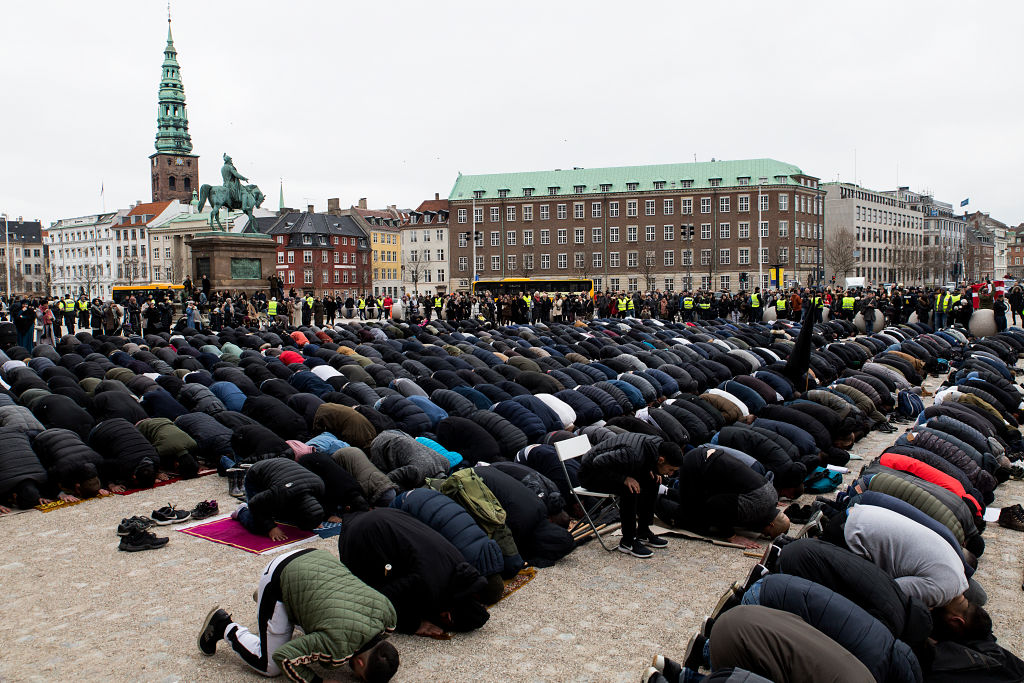The Olympics can hardly fail to be the greatest show on Earth. For the last two weeks, the world has been transfixed by sports which attract little interest at any other time. From beach volleyball to BMX bike racing to obscure forms of wrestling — all, briefly, seem to be vitally important, such is the prestige of winning a gold medal.
Yet at the same time there is something rotten about the modern Games. Their pretension to moral virtue is too often at odds with reality. They impose such a burden on their host cities that only a few countries in the world are capable of staging them.
The 2024 and 2028 Games were apportioned between the only two cities, Paris and Los Angeles, left standing after others, including Boston, Budapest and Rome, withdrew their bids. For a sporting event which claims to be bringing the world together, it ought to be an embarrassment that we are unlikely to see the Games hosted in a developing country again, after Rio de Janeiro struggled to cope in 2016.
There are many moments from Paris 2024 that will live on in the public imagination, not least the closest men’s 100 meters finals in history. Yet for many people one of the most memorable images will be of the Italian boxer Angela Carini falling to her knees after receiving a beating from the Algerian Imane Khelif, who last year was disqualified from the women’s world championships by the International Boxing Association after tests showed her to have male chromosomes. Carini, who lasted only forty-six seconds in the ring, said she had never been hit nearly so hard in her life.
While Khelif is not a transsexual (she was brought up female) ideology seemed to win over the usual considerations for safety as the bout was allowed to go ahead. The International Olympic Committee appeared to make its judgment on the matter purely on the basis that Khelif has “female” on her passport — effectively dismissing biological sex as an issue. Any country which allows its citizens to decide their legal gender will in future be allowed to send men to fight women in the Olympic boxing arena. The IOC, in other words, has allowed itself to be captured by aggressive pressure groups in western countries.
That is not the only way in which the Olympics appears to be following an agenda imposed by activists from the rich world. The Paris Games, we were told, would be the “most sustainable” in history. There is nothing wrong, of course, with a host city wanting to use clean energy and minimize pollution — on the contrary, that is exactly what they should be doing. But the organizers of these Games allowed themselves to be dictated to by climate activists.
The Games impose such a burden on their host cities that only a few countries are capable of staging them
It was decreed, for instance, that 60 percent of the food served to the athletes would be plant-based. As a result, many athletes complained that their performances were being compromised by inadequate nutrition — at which point more meat was ordered. Some teams, including Britain’s, resorted to bringing in their own food supplies and chefs. It didn’t seem to occur to the Games organizers that their strictures favored rich countries with the resources to provision their own athletes.
The same goes for the decision not to provide the Olympic village with air conditioning — a vital necessity for comfort in densely built accommodation in summer temperatures. While teams from rich countries were able to supply their own portable air conditioning units, many from less wealthy nations were made to suffer. At least one athlete was found sleeping outdoors in a park, so oppressive was the heat in the room allotted to him.
If the Games are to survive, efforts must be made to make them more manageable. This might mean excluding some sports where Olympic gold is not the pinnacle of achievement, such as football, tennis and golf. With other sports, there should be a requirement to prove that they enjoy wide-reaching global participation. Too often it seems that the countries that throw the most money at their teams end up winning.
Consideration might also be given to spreading the Games over a longer period, or across a number of cities. This already happens with some of the sports, such as this year’s surfing competition, which was held in Tahiti — about as far from Paris as it is possible to get. But there is no reason why gymnastics, for example, has to be held in the same city as swimming. Spreading the events around would allow the Olympics to become the truly global event they aspire to be. It would enable developing countries to stage some of the action.
The IOC will also need to prevent itself from becoming the pawn of powerful lobby groups out to use the Games for their own purposes. The committee has long taken a strong line against individual participants making political gestures, yet it has shown itself to be a lot less resistant to its own organizers jumping on bandwagons.
Reinventing the ancient Olympic Games was an inspired demonstration of high nineteenth century ideals. If the Games are to last to the end of this century, they are going to have to find a way of maintaining those ideals — and of becoming an event in which the entire world can compete fairly.
This article was originally published in The Spectator’s UK magazine. Subscribe to the World edition here.


























Leave a Reply